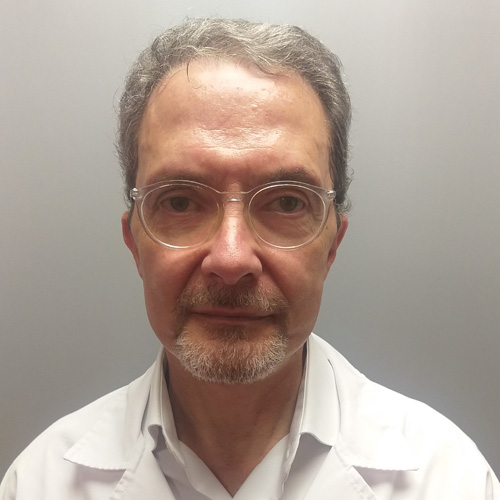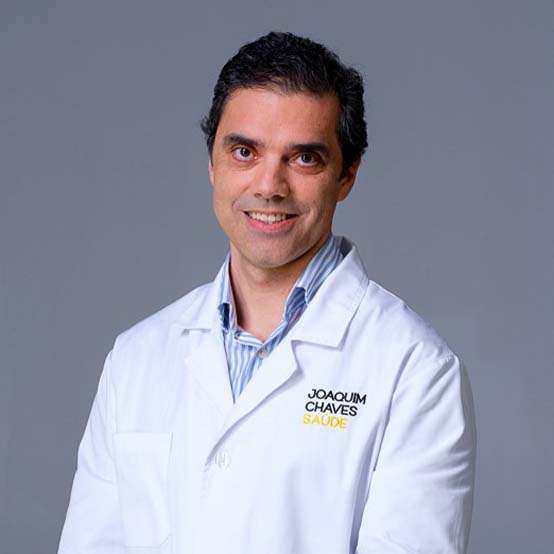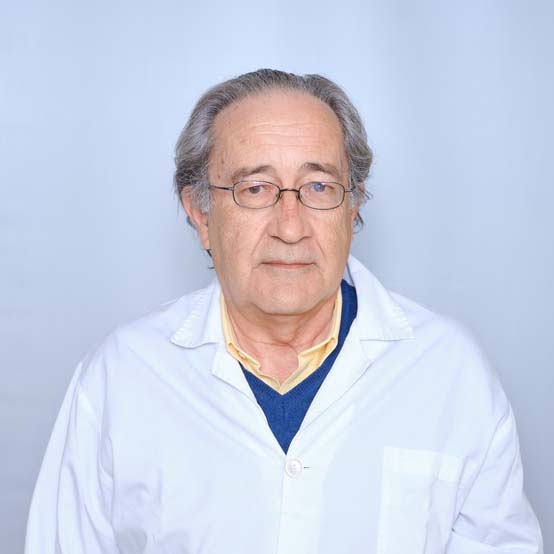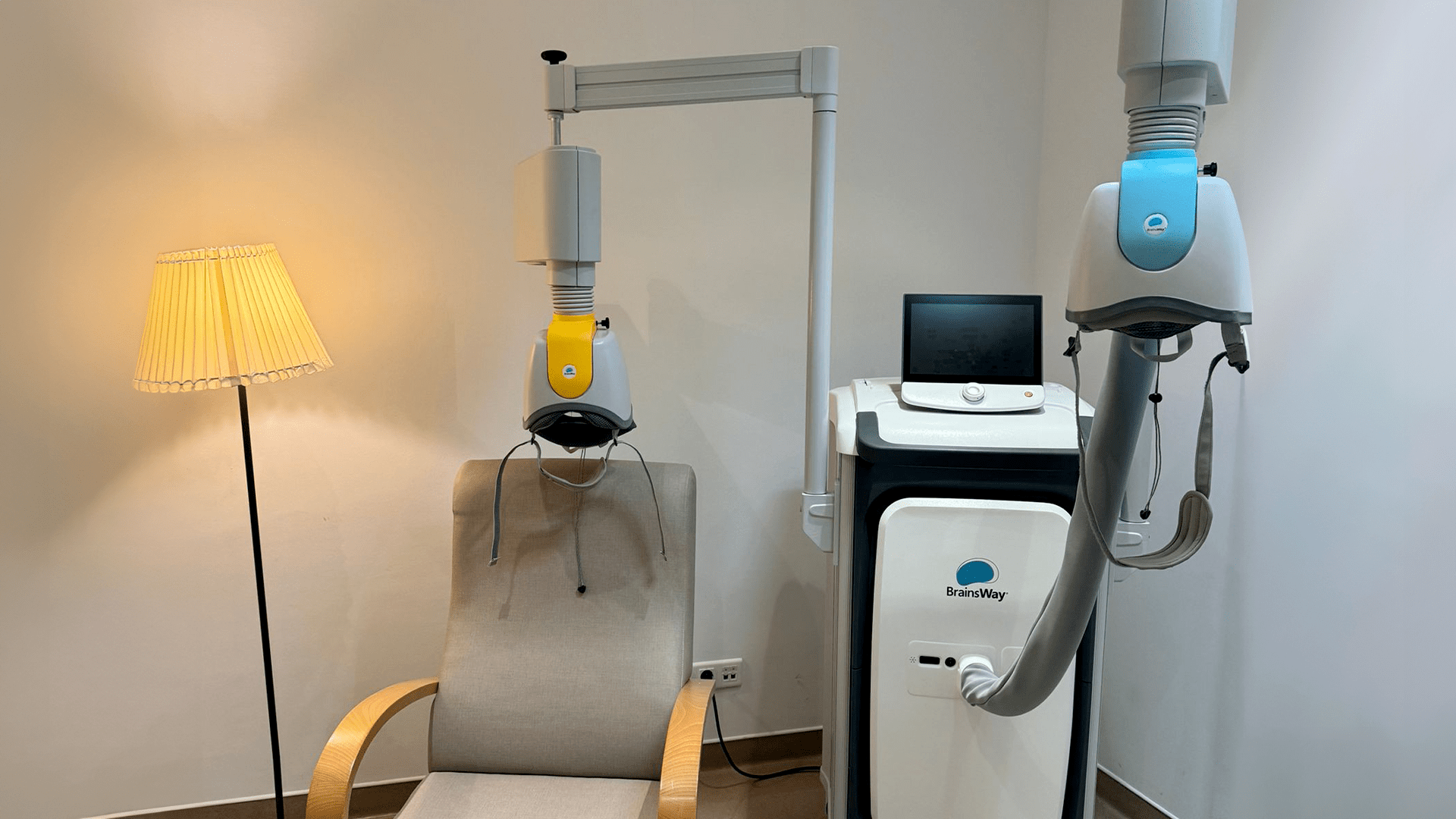What is Schizophrenia?
Schizophrenia is a chronic and severe mental illness that affects people's thinking, emotions, and behavior. It is a condition that impacts approximately 24 million people worldwide. In Portugal, it is estimated to affect 48,000 individuals. Schizophrenia is a chronic and severe psychiatric disorder that can affect people of all ages, genders, cultures, and social classes, with a tendency to manifest in late adolescence and early adulthood. This illness also has a significant negative impact on the close relatives of the affected individuals and society, incurring high direct and indirect costs. Learn what schizophrenia is, how it is treated, and how family and friends can help.
What Are the Primary Causes of Schizophrenia?
Schizophrenia is a complex illness, and its causes are not entirely understood. It remains uncertain why some individuals develop the illness while others do not. Nevertheless, research suggests that a combination of genetic, biological, and environmental factors may contribute to this disorder.
1. Genetic and Biological Factors:
Although specific genetic markers for this illness have not been identified yet, it is known that first-degree relatives of individuals with schizophrenia are at a higher risk of developing the disease. Additionally, changes in brain structure, chemical imbalances in the brain (particularly related to neurotransmitters like dopamine), and disruptions in the immune system are under investigation as potential causes of schizophrenia.
2. Environmental Factors:
Exposure to negative environmental factors such as maternal infections and malnutrition during fetal development, obstetric and perinatal complications, urbanicity, migration, and specific traumatic events can influence the risk of developing schizophrenia, especially in genetically susceptible individuals.
3. Substance Abuse:
Early, frequent, and prolonged use of substances, particularly cannabinoids, can increase the risk of developing schizophrenia, especially when there is already a genetic vulnerability. Substance abuse can sometimes trigger the first episode of the disease and lead to a worse prognosis.
What Are the Symptoms of Schizophrenia?
The symptoms of this illness are diverse and complex, generally reflecting a loss of contact with reality.
There are two main categories of symptoms: positive and negative.
Positive symptoms (hallucinations, delusions, and disorganized thinking and behavior) are more visible during acute decompensation of the disease:
1. Delusions:
Delusions are false beliefs, "ideas outside of reality," in which the affected individual firmly believes. For example, a person may believe they are being persecuted, watched, filmed, conspired against, poisoned, or harmed in some way. They may also be convinced that people in the media are communicating directly with them. Delusions, by their nature, are resistant to testing against reality and logic, persisting even in the absence of evidence or proof. Conversations, arguments, and refutations are therefore unproductive. These ideas invade and dominate the thoughts of individuals with schizophrenia, causing distress, fear, anxiety, and tension.
2. Hallucinations:
Hallucinations are defined as perceptions without objects (experiencing something through the senses that does not exist in the external world). They can occur in various sensory modalities, including auditory, visual, olfactory, or others. Patients may see, hear, or feel things that are not present, such as voices conversing with each other, insulting, or giving orders. They may also see people they attempt to converse and interact with or feel insects crawling on their skin. Like delusional beliefs, hallucinations are invasive and dominate the daily lives of people with schizophrenia. Patients are fully convinced that others want to control or harm them, and these experiences can be terrifying. Consequently, individuals tend to withdraw or become agitated, and in some cases, they may become aggressive as a defense against the perceived harm, rather than it being a personality trait.
3. Disorganized Thinking, Speech, and Behavior:
Patients with schizophrenia may exhibit disorganized thinking, which is reflected in their speech and behavior. They may have incoherent, illogical, or inappropriate speech and may even invent words. At the behavioral level, this illness interferes with a person's overall functioning, affecting their ability to self-care, work, and interact. Behaviors may seem bizarre and purposeless, and impulses may be uncontrolled or disinhibited.
Negative symptoms (changes in motivation, emotions, speech, and social relationships) represent a decrease or loss of certain normal functions that persist throughout the course of the disease, beyond acute episodes of decompensation. For example, individuals with schizophrenia may display a flat affect, monotone voice, lack of or difficulty making eye contact, and a lack of motivation or enthusiasm for daily activities. They may also isolate themselves from friends and family.
In addition to the aforementioned symptoms, there are cognitive symptoms, which involve changes in certain cognitive functions, such as attention and concentration, working memory, executive functions, among others. Finally, mood-related symptoms, such as depressive symptoms, can also occur.
How is Schizophrenia Diagnosed?
There are no specific tests that can diagnose schizophrenia. Additionally, the diagnosis is complicated by the fact that many of the symptoms can resemble typical behaviors in young individuals. The diagnosis involves a complex assessment of symptoms and signs of the disease and their progression over time. It requires the involvement of experienced mental health professionals in the fields of Psychiatry and Psychology.
1. Clinical Evaluation:
The first step is a comprehensive clinical evaluation, which includes a detailed interview with the patient and, when possible, with family members or caregivers. Mental health professionals gather information on symptoms, medical history, psychiatric history, family history, personality, and the patient's overall functioning.
2. Exclusion of Other Medical or Psychiatric Conditions:
It is necessary to rule out the possibility of other medical, neurological, or substance-induced conditions causing psychotic symptoms. Therefore, doctors may request physical exams and additional diagnostic tests to exclude other medical, neurological, or substance-related conditions that may have symptoms like psychosis/schizophrenia.
3. Ongoing Monitoring:
The diagnosis of schizophrenia requires continuous monitoring and observation of the patient over time. Doctors may adjust the treatment, prescribe different medications or combinations of medications, and assess the patient's response to these interventions.
What Is the Course/Progression of Schizophrenia?
The first psychotic episode (FPE) is the initial episode of a psychotic illness, which may correspond to various disorders (schizophrenia, mood disorders, or brief and transient psychotic disorders). In the beginning, FPE may present with various and transient symptoms, which become clearer, typical, and stable as the disease progresses or when a new episode occurs.
Many factors have been studied that appear to affect the course, prognosis, and treatment response, including demographic, biological, psychological, and cultural factors. One of the factors that has been extensively studied and shown to have a clear relationship with treatment response and prognosis is the Duration of Untreated Psychosis (DUP), which is the period from the onset of psychotic symptoms to the initiation of treatment.
As with other illnesses, the progression of these psychotic disorders has been conceptualized in a staging model, where in the early stages, prodromal or pre-psychotic phases, there are already neurocognitive changes, functional decline, and attenuated, brief, and transient psychotic symptoms. This model allows for tailoring the best treatment for each phase: in the early stages, introducing less harmful treatments and, if early detection is achieved (detecting individuals in pre-psychotic phases), delaying or preventing the onset of the disease or detecting the first episode more promptly.
Some individuals experience only one acute episode of the illness, resume their activities, and have symptoms that have little impact on their daily lives. Others may have a more severe course of the disease, with greater difficulty in resuming daily life activities, requiring closer supervision and more support.
The greater the number of acute episodes of the disease, the greater the resistance to treatment and the more compromised the long-term recovery will be. Relapses can occur primarily due to non-adherence to treatment, but there are other factors that can trigger them, such as high-stress situations, major changes in the individual's daily life, separation from or death of significant people, among others.
What Does the Treatment of Schizophrenia Involve?
Schizophrenia is a chronic illness for which there is effective treatment aimed at achieving several objectives: eliminating or reducing symptoms, reducing their negative impact on a person's life and enabling improved social and occupational functioning, preventing relapses, and preventing or reducing the number of hospitalizations. However, there is still no cure for the disease. Treatment is most effective when started early, and its maintenance determines a better prognosis for the disease.
The treatment is a complex challenge and always requires an individualized approach. The main elements of treatment include:
1. Medication:
The medications used in the treatment of schizophrenia are antipsychotics, also known as neuroleptics. They work by acting on various neurotransmitters, especially dopamine, whose imbalance explains some of the symptoms of the disease.
There are two major groups of antipsychotics: first-generation and second-generation (or atypical) antipsychotics. Currently, mainly atypical antipsychotics are used because they have fewer side effects and are less debilitating. Antipsychotic medication comes in oral formulations, i.e., daily pills, or in long-acting injectable formulations that can be administered biweekly, monthly, or quarterly.
When treatment is initiated, its therapeutic effect may take between 4 to 8 weeks to become noticeable. However, some symptoms, such as restlessness, anxiety, and insomnia, may improve in the first few days. After the first psychotic episode (FPE), medication should be maintained for at least 3 years to prevent relapses, treatment resistance, and worsening prognosis.
Each patient responds differently to treatment, and in many cases, it is necessary to test various medications and doses. In many cases, psychiatrists may choose to combine different antipsychotic medications to increase treatment efficacy or prescribe medications from other classes that have not been taken previously.
It is up to the doctor to select the most appropriate combination for each case. Some medications have side effects that should be carefully monitored, although the latest generations of antipsychotics have made significant improvements in this regard. It is essential never to interrupt or stop treatment without a doctor's recommendation, so you should always contact your doctor if disabling side effects occur.
2. Psychotherapy:
Psychotherapy is especially useful for patients who are already stabilized, helping them learn to cope with symptoms, improve functionality, and strengthen social and communication skills. Working on acceptance of the disease and the need to adhere to treatment is also important in psychotherapy. Additionally, family involvement is crucial in treatment. No medication will be 100% effective if the patient's environment and relationships are not improved. Therefore, family therapy with a focus on psychoeducation can help improve family understanding of the disease, reduce stigma, and provide the most appropriate emotional support.
It is known that cognitive-behavioral psychotherapy is also effective in cases of treatment resistance, especially in situations where positive symptoms persist and have some impact on the patient's life.
3. Psychosocial and Cognitive Rehabilitation:
Psychosocial rehabilitation encompasses various therapeutic modalities, such as socio-occupational activities, physical exercise, and art. It aims to promote autonomy in managing treatment, self-care, daily life activities, reintegration into work or school, improving social relationships, and overall functioning.
Rehabilitation programs are individualized for each patient and are particularly beneficial for cognitive and negative symptoms.
Cognitive remediation may also help improve cognitive impairments.
4. Regular Follow-Up:
Patients with schizophrenia require ongoing psychiatric and psychological monitoring, both to adjust treatment according to individual response and to provide continuous support for the daily challenges associated with the disease.
How to Help a Family Member or Friend with Schizophrenia?
Family members and friends play a vital role in supporting the recovery of individuals with schizophrenia. This disease requires special attention, understanding, empathy, and patience. Here are some ways to support someone with schizophrenia:
1. Stay Informed About the Disease:
Learn as much as possible about the symptoms, treatments, and challenges associated with this illness. This will help you better understand your loved one's condition and how to provide appropriate support.
2. Maintain Open Communication:
Keep communication lines open with your family member or friend. Encourage them to talk about their feelings, fears, and concerns. Listen empathetically and avoid making judgments.
3. Support Medical Treatment:
Individuals with schizophrenia often struggle with treatment adherence. Encourage them to adhere to the prescribed medical treatment. Remind them to take their medications and be emotionally supportive. Accompany them to medical appointments and be there for them during the treatment process.
4. Offer Practical Support:
Assist with daily tasks such as preparing meals, personal hygiene, or household chores. This can help alleviate some of the stress and emotional burden that patients face daily.
5. Promote Independence:
Encourage participation in activities that promote independence and self-esteem, such as hobbies, exercise, or other activities that bring pleasure and a sense of accomplishment.
6. Be Understanding:
Schizophrenia is a challenging illness. Be patient and understanding and remember that the individual's behavior is not a choice. For those who suffer from this disease, delusions or hallucinations are real. Maintain a supportive and calm attitude, avoid blame, and discourage inappropriate or dangerous behavior.
7. Seek Therapy for Yourself:
Caring for a family member or friend with schizophrenia can be emotionally demanding. Personal psychotherapy is essential to take care of your own mental health and, thus, to remain able to help with the patient's care.
8. Prepare for Emergencies:
Familiarize yourself with emergency plans, contact numbers for healthcare professionals, and procedures in case of crises or risky situations.
Resistant Schizophrenia: What Is It and How Is It Treated?
Approximately 1/4 of people who experience a first psychotic episode (FPE) will develop treatment-resistant schizophrenia. However, there are currently no clinical methods that can detect this treatment resistance from the beginning of the disease.
When a patient is diagnosed with treatment-resistant schizophrenia, it means that the symptoms do not significantly improve even after appropriate first-line treatment. In other words, they do not respond to treatment with two typical or atypical antipsychotic medications at an effective dose and taken for the necessary time to observe a clinical response. In other words, they do not obtain significant relief from symptoms such as hallucinations and delusions, even after treatment. It may also happen that side effects become intolerable, making it impossible to continue treatment.
The feeling reported by family members is that treatment is not working or may even be harmful due to side effects. In these cases, discouragement can increase as families begin to lose hope. However, there are therapeutic alternatives that can help control symptoms, such as the introduction of a second-line antipsychotic medication, which requires frequent laboratory monitoring, especially at the beginning of treatment, the addition of other classes of psychotropic drugs, cognitive-behavioral therapy, and electroconvulsive therapy (ECT).
Joaquim Chaves Saúde and the Treatment of Schizophrenia
Although there is no cure yet, the prognosis for schizophrenia has been improving. New drug therapies, along with comprehensive psychosocial intervention, allow for a higher quality of life and greater autonomy.
At Joaquim Chaves Saúde, you will find a multidisciplinary and experienced medical team ready to support you throughout your process, with specialized consultations in the early stages of the disease and in cases of treatment resistance. Specialized help and adherence to treatment allow for the remission and control of symptoms in most patients, with a significant improvement in well-being and quality of life. Schedule your consultation through the personal area of the website or our app.






